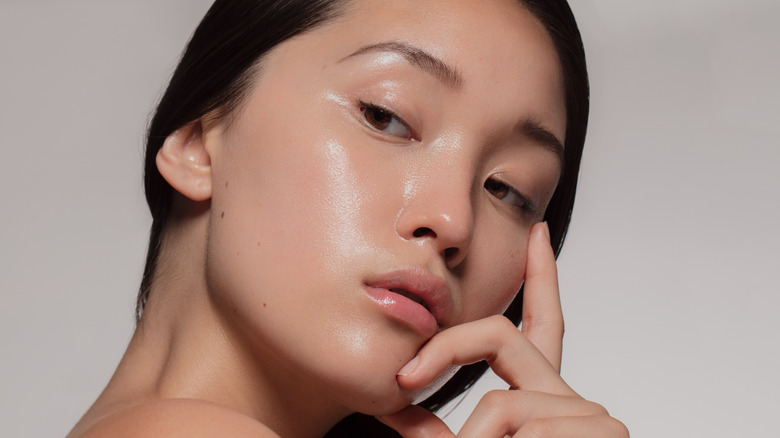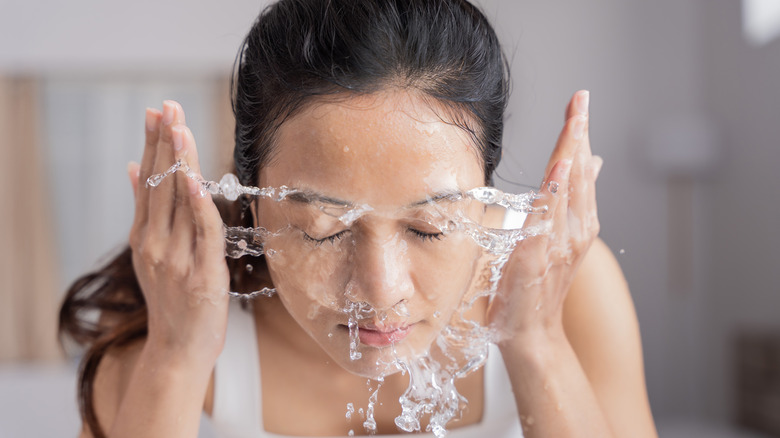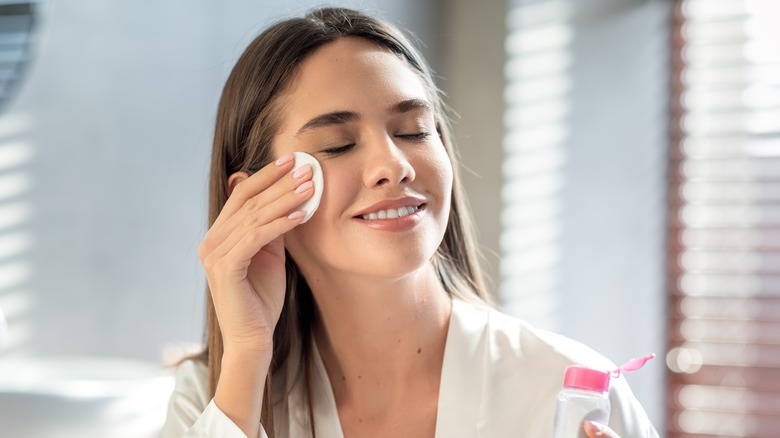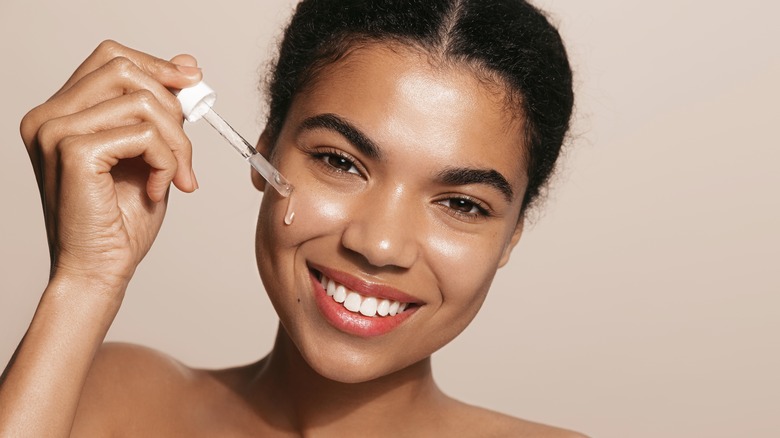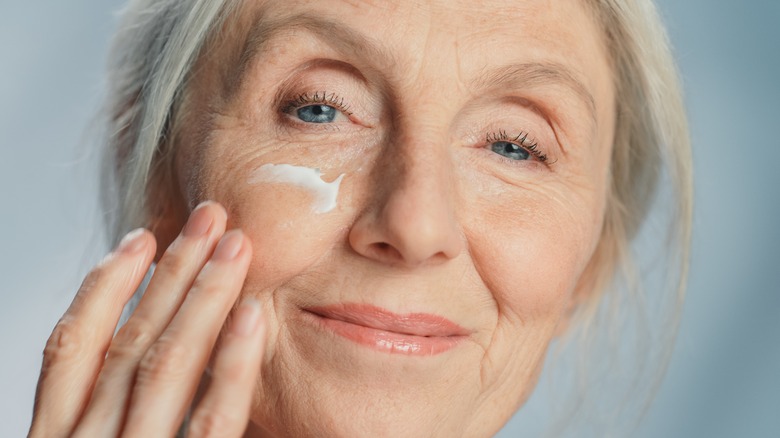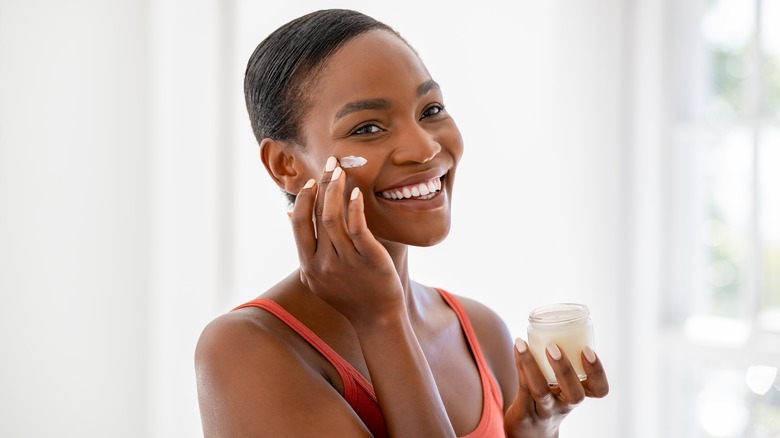Skincare For Beginners: Products You Need For Your Daily Routine
Our skin is one of the first things that people notice about us, and taking care of the precious external body organ is something that should be a priority for everyone. Of course, there are so many confusing and contradicting tips and myths about skincare these days. Not to mention the overwhelming amount of skincare products on the market, some of which aren't worth the money. It may be tough for skincare beginners to know where to start. However, building a skincare routine doesn't have to be complicated. In fact, simply knowing what type of product to add in the correct order will help you figure things out tremendously.
A handful of staples should be in your daily skincare routine. From there, you'll need to find the correct product for your specific skin. For example, if you have oily skin, you'll want to find brands that target that specific issue. The same goes for combination skin, dry skin, and other conditions. After gathering products that you believe will work for your skin, it will be time to put them to use. "A consistent, healthy routine is important for establishing rhythm and order in our lives," Corey L. Hartman, M.D. tells SELF.
So, let's break down the skincare products that beginners need in their daily regimens.
A good cleanser is key
The first step in any good skincare routine is cleansing. Most people should be cleansing their faces twice a day, in the morning and at night. However, those with very dry or sensitive skin may want to skip cleaning products in the morning and opt for plain water. Others can use their cleanser both day and night. "At the end of the day, it's important to cleanse to remove not only skin-care products and makeup that you applied in the morning, but also excess oil, sweat, dead skin cells, pollutants, and other debris that collect on the skin throughout the day," dermatologist Dr. Sejal Shah tells Allure.
It's important to understand the needs of your specific skin so that you can grab the right cleanser that will work for you. Those with oily skin may look for a foaming or gel cleanser, while people with dry skin should look for a cream or balm that will help hydrate their faces. Meanwhile, others who have issues with acne may want a cleanser that is made for fighting pimples.
After washing your face and removing all of the oil, makeup, and dirt, it's time to move on to toner.
Toner should be used after cleansing
Using a toner following a good face wash is an important step in any good skincare routine. Toners have come a long way over the years, and can now deliver some amazing benefits and extra nutrients to the skin, as well as help get any debris that was missed in the cleansing step. Toners can help inject your skin with extra moisture, vitamins, and even improve the look of dark spots as well as reduce uneven skin tones. Again, finding a toner that offers benefits to help your skin will take a bit of research, but will be worth it in the long run.
To apply toner, be sure your hands are clean and simply apply a few drops. Then apply the product to your face evenly. Another option is to use a cotton pad. However, aesthetician Jordana Mattioli tells the New York Times that bare hands are better so that you don't end up tossing out unused product with the cotton pads.
Using a toner is an easy step that can offer a lot of benefits to any skincare routine, and should be done after cleansing to get the full benefit of the product.
Serums are a great way to keep your skin looking young and healthy
Skincare serums can offer so many amazing benefits to your skin and should be applied following cleansing and toning. There are several different types of serums to choose from, but not all should be used together. For example, if you want to use retinoids to reduce wrinkles and help produce collagen, they should be used in your nighttime routine only. Meanwhile, other serums such as hyaluronic acid can help moisturize your face and give your skin a more full and plump look.
Vitamin C is also a favorite among skincare enthusiasts, as it's known to help brighten the appearance of skin and reduce the appearance of dark spots. Vitamin C is a great serum to use if you're looking to combat sun damage as well. "Everyone should use vitamin C, no matter what age. It helps reverse a lot of the skin damage we get from the sun and pollution," Dr. Ashley Magovern tells Good Housekeeping. Other options for facial serum include niacinamide and peptides.
Again, a bit of research can go a long way when it comes to finding the serum that will offer the most benefit to your particular skin type.
Eye cream treats the most sensitive skin on your face
The skin around the eyes is some of the most sensitive on our faces. The eyes are often one of the first places that people see signs of aging as well. Wrinkles, dark spots, bags, and drooping around the eyes are common as our skin ages. This is why using eye cream is a crucial step in a skincare routine. Eye cream also offers more moisture to the under-eye area, which is beneficial because the skin is so thin. It can also help soothe tired-looking eyes. Some ingredients that may be included in eye cream are caffeine, green tea, vitamin C, aloe, retinol, and peptides.
Using eye cream is simple. After using cleanser, toner, and your favorite serums, just grab a pea-sized amount of cream and tap it into your under-eye area with your finger, starting in the corner and moving outward. Of course, be cautious about getting the cream in your eyes. It's also important to use a gentle touch while applying eye cream because of the sensitivity of the skin. If you're looking to really help de-puff the skin under your eyes, consider putting the cream in the refrigerator to add a bit of a kick to your skincare routine.
Moisturizer and SPF should finish off your skincare routine
The final step in a productive skincare routine is moisturizer. Using a moisturizer is key to keeping your skin looking soft and hydrated. As with a cleanser, it's important to find the right kind of moisturizer for your skin. Switching up your moisturizer from season to season can also be helpful depending on your skincare needs. "Everyone needs moisture, but the texture of your moisturizer will differ depending on your skin type," aesthetician Jordana Mattioli revealed to The New York Times. In addition, massaging the face while applying moisturizer can also allow the product to absorb better and improve circulation in your face.
At night, moisturizer should be the final step in your skincare routine. However, during the day, adding SPF following your moisturizer can be the most important step in any skincare routine. The sun can severely damage skin, and sunblock will allow you to combat the harsh UV rays that can cause wrinkles, discoloration, or even skin cancer. "If you don't wear sunscreen, you might as well not do any of the other steps. The sun is the number one reason skin ages prematurely," Dr. Ashley Magovern tells Good Housekeeping.
As a beginner, a skincare routine can seem like a big undertaking. However, once you've found the right products and start being consistent with your routine, you'll find that it's well worth the effort, and your skin will thank you for years to come.
